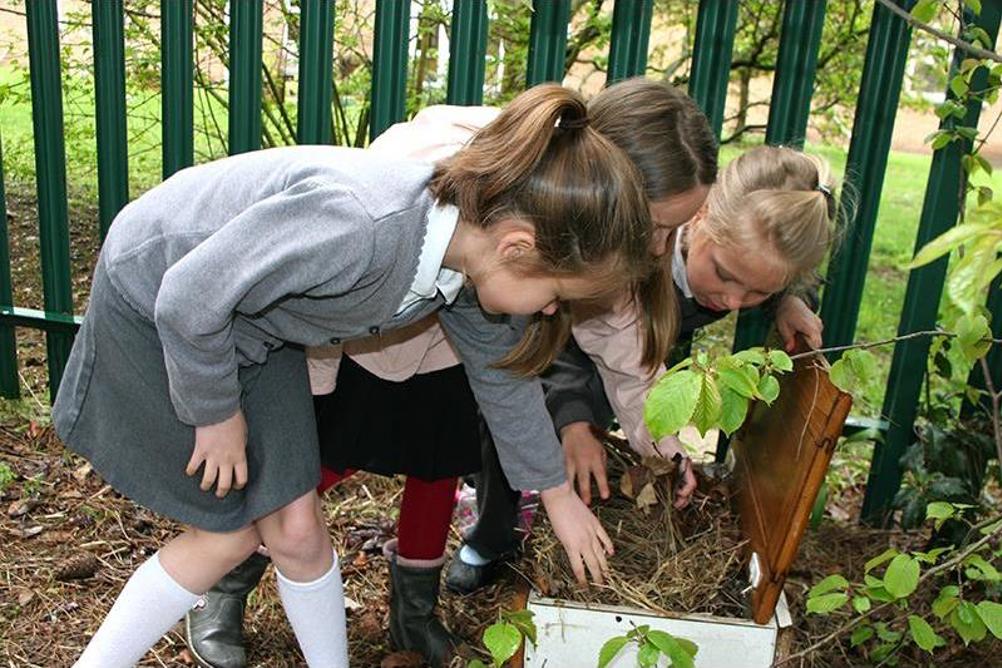
For those who like taking children out and about, the Education Endowment Foundation (EEF) research findings make welcome reading. The Teaching and Learning Toolkit from the EEF is a popular resource that analyses what works and what doesn’t. Its research evidence provides justification for leaving the classroom, taking children outside of their comfort zone and into the wild.
The EEF gives outdoor adventure learning a rating of moderate impact for moderate cost. They suggest that the evidence points to an increase in terms of learning of four months additional progress across the year and that there is evidence of an impact in relation to outcomes such as self-confidence.
However, there is a word of warning. Although the results are positive, they are based upon limited evidence, particularly when it comes to primary schools. Many of the studies focus on older students and those who are classed as young offenders. This doesn’t mean that the benefits should be denied, just taken with a little caution.
What is outdoor adventure learning?
According to the definition given by the EEF: “Adventure education usually involves collaborative learning experiences with a high level of physical (and often emotional) challenge in an outdoor or wilderness setting. Practical problem-solving, explicit reflection and discussion of thinking and feelings may also be involved.”
It typically includes climbing or mountaineering, survival, ropes or assault courses, or outdoor sports, such as orienteering, sailing and canoeing. They do not class forest schools or field trips in their definition as they consider that adventure learning interventions do not typically include formal academic content.
Why is it good for us?
How then is the four additional months learning progress achieved? The EEF acknowledges that “understanding why adventure learning interventions appear to improve academic outcomes is not straightforward”.
However, the EEF suggests that the development of non-cognitive skills such as perseverance and resilience have benefits too for academic study. It states that “studies of adventure learning interventions consistently show benefits on academic learning”. The EEF also suggests that there is evidence of impact on non-cognitive outcomes such as self-confidence. The greatest impact being in relation to more vulnerable and older learners.
Meanwhile, research from the National Foundation for Educational Research (NFER) in 2004 – A Review of Research on Outdoor Learning – found that: “There is considerable evidence to suggest that outdoor adventure programmes can impact positively on young people’s attitudes, beliefs and self-perceptions.” They report that outdoor programmes provide young people with the opportunity to act successfully in a variety of challenging situations and so increase self-confidence and self-efficacy.
Dealing with a wilderness environment also contributes to the success of these programmes. Young people, particularly those with behavioural difficulties, must modify their own behaviour in the face of a challenging or unpredictable environment. This can then have implications for their longer term self-control and independence.
In summary, the NFER research suggests that there is substantial research evidence to indicate that outdoor adventure programmes can impact positively on young people’s:
- Attitudes, beliefs and self-perceptions including independence, confidence, self-esteem, locus of control, self-efficacy, personal effectiveness and coping strategies.
- Interpersonal and social skills such as social effectiveness, communication skills, group cohesion and teamwork.
The evidence suggests that experiences that are over a week long have a greater impact and that their effects last longer too. However, there are difficulties in offering routinely this kind of learning as the courses are relatively expensive.
For primary children too?
The research is positive in its support of outside adventure learning but it is unclear how much of this has taken place with the primary school age group. Some of the activities listed would be difficult for primary schools to offer either themselves or through an outside provider.
However, many primary schools do offer annual adventure trips and some providers have made an industry out of this. The lowest common denominator of an outdoor adventure programme would be that it took pupils away from their normal environment to do physically active things. A definition well in the scope of most primary schools.
To be most effective, any programme that children have engaged on, should be built on back in the classroom. This can be difficult if not all the children have taken part. Offering outdoor adventure experiences to all pupils will need careful planning to ensure that it does not dig too deep into the school’s budget.
There may be little evidence as to the benefits of outdoor adventure education for primary pupils, but do we need this evidence anyway? The response of children taken out of the classroom, whatever the level of adventure might be, is evident in their faces. For many primary school teachers, that’s evidence enough.
- Suzanne O’Connell is a freelance education writer and a former primary school headteacher.
Further information
- A Review of Research on Outdoor Learning, NFER and King’s College London, March 2004: http://bit.ly/2K8k67w
- Teaching and Learning Toolkit: Evidence on outdoor adventure learning: https://educationendowmentfoundation.org.uk/evidence-summaries/teaching-learning-toolkit/outdoor-adventure-learning/
